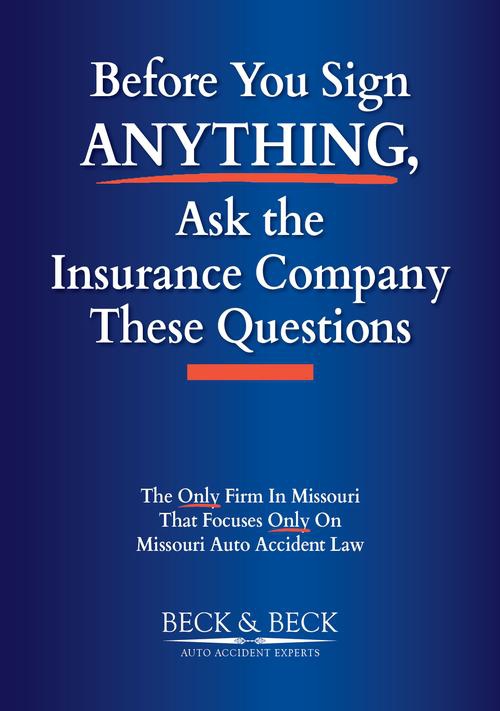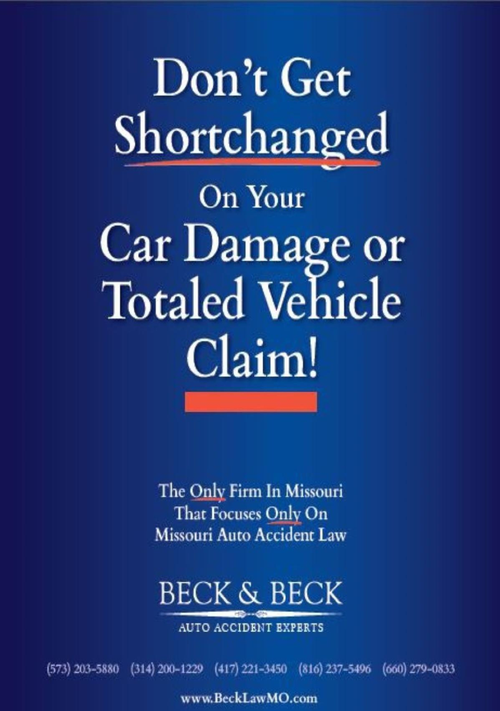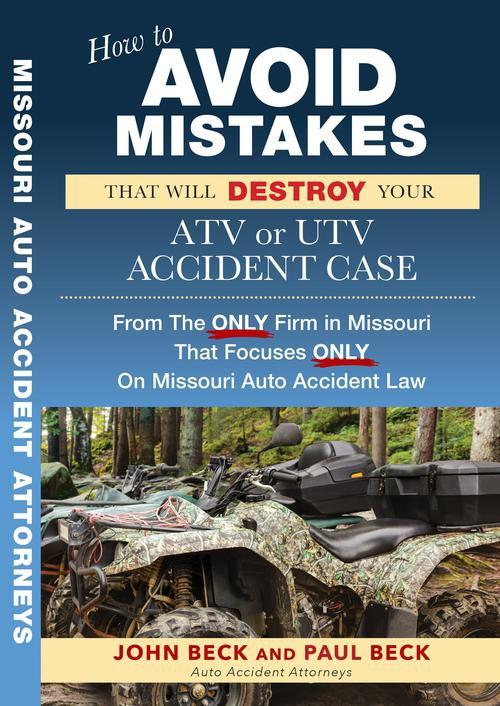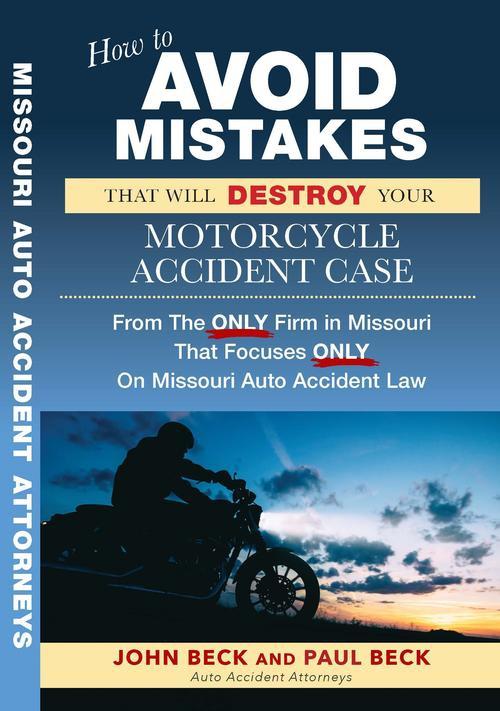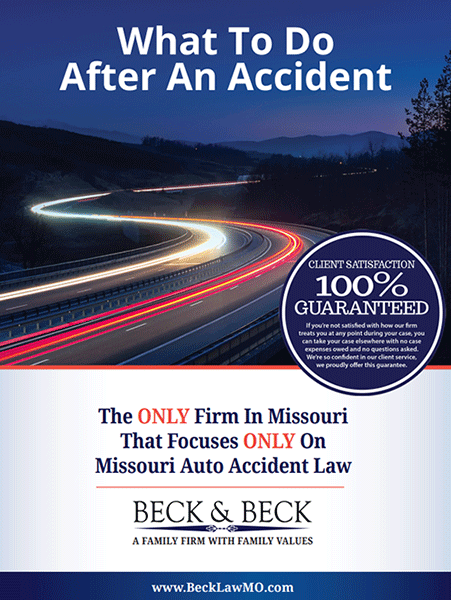The reality is that whether you were wearing a helmet or not at the time of your motorcycle accident, settling these cases isn’t always simple. Missouri is one of just a few states that doesn’t require all riders to wear helmets. That catches many people off guard—and it can affect how insurance companies look at your claim.
Yes, you can recover damages after a motorcycle accident in Missouri even if you weren’t wearing a helmet, but you could be held partially liable if your failure to wear a helmet contributed to your injuries.
The law no longer requires riders over 26 to wear helmets, but that doesn’t mean helmet use is irrelevant in a legal case. Insurance adjusters may argue that not wearing one made your injuries worse. If that argument holds up, it can reduce the amount you’re able to collect.
Every case is different. If your injuries involved your head or face, and you weren’t wearing a helmet, it’s more likely the defense will try to shift some of the blame your way. That doesn’t mean you lose your right to recover—it just means fault may be divided based on the facts.
Our award-winning Missouri motorcycle accident lawyers help riders sort through these situations after a crash.
How Not Wearing a Helmet May Affect Your Missouri Motorcycle Accident Claim
In Missouri, not wearing a helmet doesn’t prevent you from filing a personal injury claim after a motorcycle accident. If another driver caused the crash—by drifting into your lane, texting behind the wheel, or failing to check a blind spot—you still have the right to seek compensation.
Your helmet use isn’t what caused the collision. Missouri’s pure comparative negligence system means fault can be divided, but one party’s carelessness doesn’t cancel out the other’s right to recover damages.
Comparative Negligence and Helmet Use
Here’s where things get more complicated. If you were hurt in a crash and weren’t wearing a helmet, an insurance company might try to reduce what they owe you. As we mentioned, they could argue that your injuries were made worse by not wearing one.
Missouri law allows for this kind of argument under the pure comparative negligence rule. That means a jury could say you’re partially responsible for the severity of your injuries and reduce your compensation accordingly.
How Fault Affects Compensation
Let’s say you had $100,000 in medical bills and lost wages. If a jury believes your injuries would’ve been less severe with a helmet, they might assign you 25% of the blame. That would reduce your total compensation to $75,000. This doesn’t mean you can’t recover anything—it just means the final amount could be lower.
Insurance Companies Will Push Back
Even if helmet use had nothing to do with how the crash happened, insurance adjusters will often bring it up to avoid paying full value. That’s a common tactic. The important thing is that helmet use doesn’t decide fault. It may affect your compensation, but it doesn’t take away your right to file a claim.
Motorcycle Helmet Laws in Missouri
As of August 28, 2020, Missouri no longer requires all motorcyclists to wear helmets. The updated law, outlined in RSMo. 302.020, says that helmets are still mandatory for certain riders. If you’re under 26 years old, or if you only have a motorcycle instruction permit, you’re legally required to wear a helmet every time you ride. This rule applies whether you’re operating the motorcycle or riding as a passenger.
Helmet Optional for Riders 26 and Over—With Conditions
If you’re 26 or older and want to ride without a helmet, you must carry valid health insurance. The law requires proof of a policy that offers at least $50,000 in medical benefits for injuries from a motorcycle crash. Riders with employer-provided coverage that includes crash-related medical care also qualify. You may also need to show that you’ve taken a state-approved motorcycle safety course and held a motorcycle license for at least two years.
What Counts as a Motorcycle or Motor-Tricycle?
Missouri law defines a “motorcycle” as any two-wheeled motor vehicle. A “motor-tricycle” includes three-wheeled bikes that you straddle and steer with handlebars. These vehicles are covered under the helmet law, but electric bikes are not.
Helmet Safety Requirements
If you do wear a helmet, it must meet safety standards. The Missouri Department of Transportation recommends helmets that weigh about three pounds, have a foam liner at least an inch thick, and include solid chin straps. Look for a DOT label on the back to confirm it meets national safety standards.
Penalties for Violating the Helmet Law
If you’re pulled over and not following the helmet rules, you could be fined. In most cases, the penalty is a $25 ticket.
Damages in Helmetless Motorcycle Accident Claims
Even if you weren’t wearing a helmet at the time of the crash, you still have the right to seek compensation if another driver caused the accident. Under Missouri law, you may be held partially responsible if your injuries were made worse by not wearing a helmet. But as stated before, that doesn’t block your claim—it just means your final award might be reduced based on how much fault is assigned to you.
There are two main types of damages in personal injury cases: economic and non-economic. Both are important when evaluating how the accident has affected your life.
Economic Damages
These refer to the financial losses you’ve suffered as a result of the accident. They’re typically backed by receipts, records, and expert evaluations.
- Medical expenses: This includes hospital stays, surgeries, diagnostic tests, follow-up visits, physical therapy, and prescriptions.
- Ongoing medical care: If your injuries require long-term treatment or support, these future costs are considered.
- Lost wages: If you missed work due to the accident, you can claim the income you didn’t receive.
- Loss of future earning ability: Serious injuries, especially head injuries, can limit your capacity to work, sometimes permanently. That financial impact can be factored in.
Non-Economic Damages
These are less tangible but still significant. They deal with how the injury changes your daily life and overall well-being.
- Pain and suffering: Physical discomfort and chronic pain from your injuries.
- Emotional distress: Mental health struggles like anxiety, depression, or PTSD that developed after the crash.
- Loss of enjoyment of life: Missing out on activities you once looked forward to.
- Loss of companionship: The way the injury has affected your relationships with family or a partner.
Documenting how your injuries have impacted your routine, hobbies, and relationships can help support your claim. This is especially important when a lack of helmet use is being used against you to limit the value of your case.
What to Expect From the Insurance Companies
After a motorcycle accident, insurance companies will examine every detail to protect their bottom line—and helmet use is one of the first things they’ll look at. If you weren’t wearing a helmet at the time of the crash, they may try to use that against you, arguing your injuries would have been less severe with proper protection. Even if the accident wasn’t your fault, they could reduce what they’re willing to pay based on that argument.
That said, wearing a helmet doesn’t automatically guarantee a smooth process. Some insurers might question the type of helmet you used. If it wasn’t DOT-approved or offered limited protection, they may argue it wasn’t enough to prevent your injuries.
Helmet use is just one piece of the puzzle. They’ll also review the speed you were traveling, the type of bike you were on, your driving record, and any police reports. If you were following the law and riding responsibly, that can help your case—but don’t expect the insurance company to be fair on their own.
To protect your rights and make sure you’re not taken advantage of, it’s smart to work with an experienced Missouri motorcycle accident lawyer who knows how to handle these tactics.
Missouri Motorcycle Accident Law Firm
Motorcycle accident claims can be complicated—especially if you weren’t wearing a helmet. Even when the other driver is clearly at fault, insurance companies may still try to shift the blame and reduce what they owe. That’s where Beck & Beck Missouri Car Accident Lawyers come in.
Our firm focuses only on Missouri car and motorcycle accident cases. We know how Missouri’s helmet laws work and how to push back when insurers use them to undervalue your claim. We’re here to protect your rights, guide you through the process, and work to recover the compensation you’re owed for your injuries, lost wages, and other damages.
You don’t need to worry about upfront costs. Beck & Beck Missouri Car Accident Lawyers work on a contingency basis, meaning you don’t pay us unless we recover money for you.
Your consultation is completely free and confidential. If you’ve been injured in a motorcycle accident, don’t wait for the insurance company to decide what your case is worth. Contact Beck & Beck Missouri Car Accident Lawyers today. We’re ready to help you take the next step.

